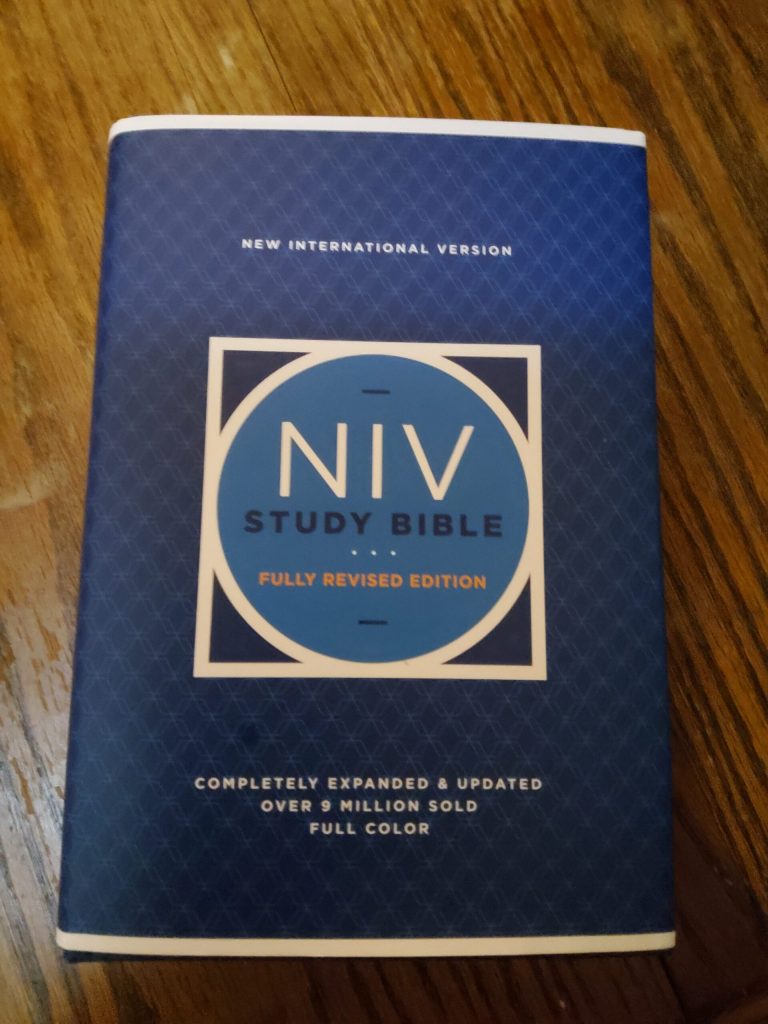Peter Enns, Incarnational Inspiration, and Seminary Authority
In 2005 Peter Enns, a professor of Old Testament at Westminster Theological Seminary, published a book titled Inspiration and Incarnation, and it is likely going to cost him his tenured position. I’m writing about this on this blog because of the implications of his incarnational view of inspiration for Biblical interpretation. I have not yet read this little book. I found out about it through this controversy. Let me comment to you the Christianity Today news article, and this review in JETS by G. K. Beale. The review is not particularly favorable, but it follows the kind of standards for writing and citation that would suggest it’s fair. (HT: Everyday Liturgy)
What am I writing about, if I haven’t even read the book? Primarily I’m writing because of the impact on good education of seminary policies such as this one. Secondly, I know of other cases in which discussion of inspiration leads to this kind of reaction, to the detriment of serious consideration of the issues. Often the people in the pews are left without any sort of answers, or better any sort of structure in which to discuss answers because the theologians are avoiding them. Thirdly, I publish a book that uses the incarnational metaphor, Who’s Afraid of the Old Testament God?, by Dr. Alden Thompson, who has also elicited some controversy due to his view of inspiration. Finally, I hold an incarnational view of inspiration myself, as espoused in my book When People Speak for God.
If you were to take the quotes and summaries by G. K. Beale in his review, not do any contortions to try to put a good face on them, i.e. take the more liberal interpretation, then you would have something like my own position. I will have to see when I get a copy of the book myself whether I think these things are fair with reference to Dr. Enns. I would simply note at this point that none of the material quoted appeared at all shocking to me, but then I’m not an evangelical.
The problem I have here is with the seminary. First, let me say that I fully accept that a seminary belonging to or sponsored by a confessional body, has every right to control what is taught there. At the same time, the rest of us have every right to criticize their choices. The value of that criticism has nothing to do with changing the seminary. They’re not going to listen to me, and I wouldn’t even argue that they should. I’m not evangelical, I’m not Calvinist, and I don’t like the Westminster Confession.
I criticize nonetheless because I believe we need to be aware of the problem of education that is constrained by a specific confession and that won’t allow anyone to question or work around the boundaries. The area of inspiration is one that has many lay members confused, and it is one where our young people who go to secular universities find themselves generally unequipped. When we constrain the playing field so thoroughly that we can’t discuss the type of issues that Dr. Enns raises, then I question the quality of the education that results.
There is here a great gulf fixed between a secular, academic education, and an education at a confessional institution. I’m not sure how one should draw the boundaries if one belongs to a confessional church, but if one’s convictions are to be sound I think one has to have honestly explored alternate possibilities without the fear that stepping across the line will ruin one’s life.
The combination of those elements is very difficult, and perhaps even impossible for a very confessional church, which is why I avoid such a thing. I am jealous of the ability to explore, to be wrong, and perhaps later to correct my course.
In the final analysis, however, those who want to explore real answers to questions of inspiration will probably have to break the bonds in a more serious way, finding a less constrictive environment. The problem for many is that they have a firm faith and a strong commitment to their faith community, so it is hard to just move on. Such is the tragedy of the right of the seminary to manage itself, versus the need for thinking people to explore.
While I found it necessary to step out of the community in which I grew up, I understand those who find that difficult, and who then spend years or decades in conflict with a community that they love.
One final note–these are the folks who want to “teach the controversy” in public universities and in our high schools. The real goal is to put science within confessional boundaries, a straightjacket that will certainly not fit it.


Thanks for this.
Interestingly there is not the same “great gulf fixed” here in the UK. In several places, such as Cambridge, Oxford and Durham, there are confessional seminaries (not by that name, here they are just called “hall” or “college”) loosely attached to secular universities, who offer a mixture of university courses and ones arranged by the seminary. Admittedly these seminaries tend to be moderate to liberal ones; the most evangelical ones keep their distance from the universities. But at places like Ridley Hall, Cambridge and Cranmer Hall, Durham (and formerly, maybe not so much now, at Wycliffe Hall, Oxford) it is possible to get a university degree in theology while training for Anglican ministry in a moderate evangelical environment.